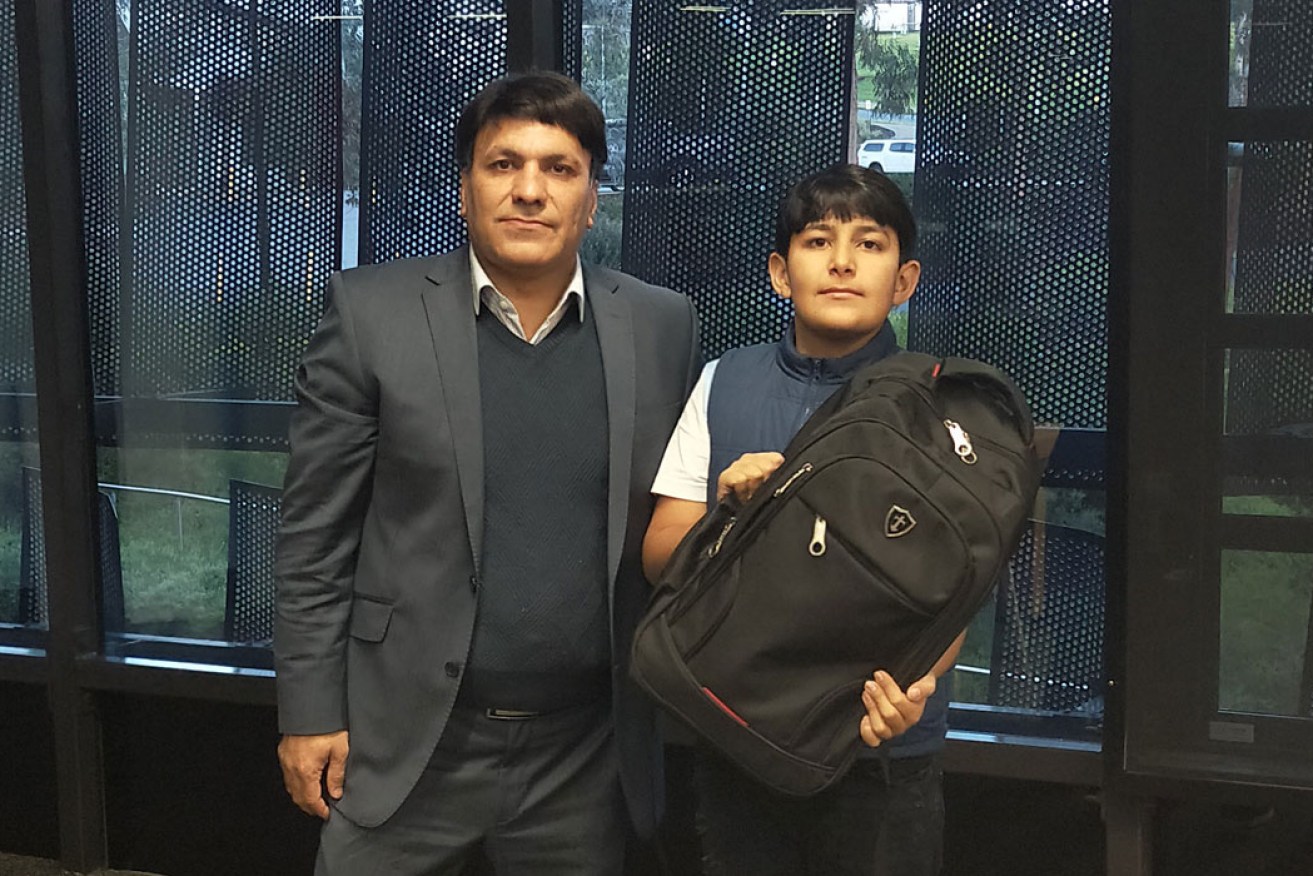Engineers have invented a ‘smart’ schoolbag so kids will never ‘forget’ their homework again


Engineer Hamid Abdi (left) was inspired to invent a 'smart' schoolbag after son Nikan (right) forgot to pack a school project. Photo: Supplied
A classic school day drama has inspired a Deakin University engineer and inventor to solve a problem that has driven parents insane since classrooms were invented.
Dr Hamid Abdi was taking his son Nikan, then aged 10, to school one windy winter’s day when he asked the lad if had everything he needed – lunch, textbook, homework.
Oh yes, Nikan assured him – as school children tend to do.
When they arrived at the school, the younger Abdi declared that in fact he’d forgotten a joint project and became upset. By the time the project was fetched from home, father and son were late for their respective obligations – and the morning was complicated by emotional fallout.
Over the next year, Dr Abdi asked other parents to what extent they were plagued by the under-packed schoolbag.
“I could see this was a general problem,” he said.
It proved to be enough of a problem that Dr Abdi recruited Masters students – Jayadev Ajayakumar, Naga Venkata Durga Surendra Anna and Lahiru Abeysekara – to engineer a “smart” schoolbag that knows whether or not it’s packed properly, according to the demands of the day’s timetable.
Dr Abdi said they have a prototype set to be trialled in a Geelong primary school – with a view to then securing a commercial partnership.
The smart schoolbag uses radio frequency identification (RFID) chips to detect items in the bag – including lunch, sports gear, hat and jumper – and the Internet of Things (IOT) technology to check its contents against the daily school plan.
https://www.youtube.com/watch?v=QSIPNhOiMoE
An RFID chip is a tag, label or card tag affixed to items – library books are a good example – in order to track them using an RFID reader and antenna.

Parents can check the contents of their kid’s bag on a mobile app. Photo: Supplied
They’re cheap – sometimes no more than 10 or 15 cents – and similar to barcodes, but more efficient, and they don’t need to be in the line of sight of the reader to be picked up.
When the tag receives the transmission from the reader/antenna, the energy runs through the internal antenna to the tag’s chip.
“We know packing the schoolbag each morning can be difficult, especially for younger kids, because the timetable changes daily and each day they need to pack different things,” Dr Abdi said.
“A mobile application developed in this project lets parents see the items in the bag and automatically checks them off against the timetable, identifying what is missing and notifies parents if anything else needs to be packed.”
Dr Abdi said that parents would need to commit to the once-a-year chore of tagging all school books and other items with RFID chips – perhaps in the way parents once spent a weekend covering books in plastic and using markers to put their children’s names on clothes.
The other part of the system is the Internet of Things – where the daily list of required items, as set out in a school’s online timetable, via wi-fi, will talk to the RFID reader, which in turn will establish whether or not the bag is loaded with everything on the day’s list.
“We think the smart schoolbag will save a lot of time and stress that occurs when homework, hats or lunches are left home by mistake, especially if that requires parents to quickly race home to collect the missing item,” said Dr Abdi.
“At the same time we wanted to minimise the weight of the bag to reduce the discomfort children experience carrying a heavy load on their backs and shoulders.
“With a smart schoolbag, children won’t need to leave everything in their bag every day. The system helps them pack only what is needed that day and not worry about forgetting something the next day.”
The engineers have also developed an app that allows parents to add other items to the daily list if there are special occasions or projects not covered in the more general timetable.








